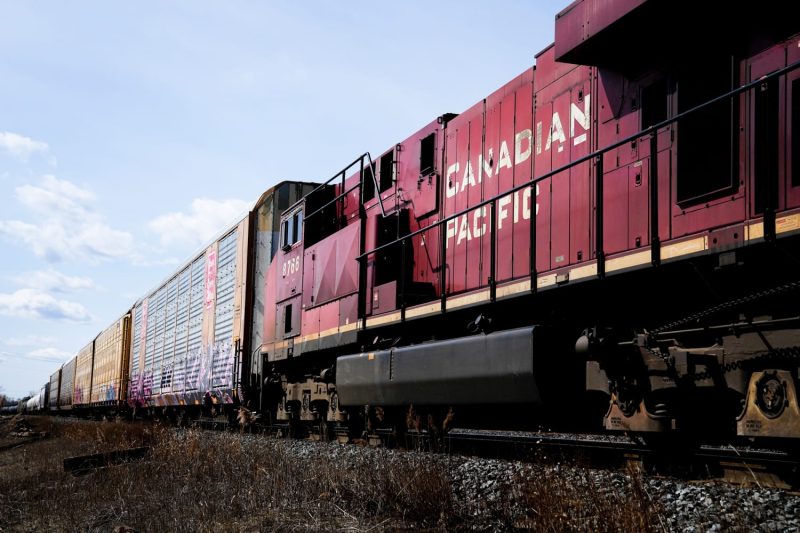
Railroad Chaos: Threatened Work Stoppage May Disrupt U.S. Supply Chain via Canada
The possible work stoppage at Canada’s two largest railroads, Canadian National Railway (CN Rail) and Canadian Pacific Railway (CP Rail), has significant implications for the US supply chain. Disruptions in the operations of these key transportation networks could have far-reaching consequences on various industries in both Canada and the US. The intricate network of railroads plays a crucial role in the movement of goods and commodities across North America, making any potential disruption a cause for concern.
One of the primary concerns stemming from a work stoppage at CN Rail and CP Rail is the impact on the flow of goods between the US and Canada. Both countries heavily rely on rail transportation for the movement of essential commodities such as agricultural products, energy resources, and manufactured goods. Any disruption in rail services could lead to delays in the delivery of these goods, potentially causing shortages and higher prices.
Furthermore, the interconnectivity of the North American supply chain means that disruptions in one part of the network can have cascading effects on other industries. For example, a work stoppage at Canadian railroads could affect US businesses that rely on timely delivery of raw materials or components sourced from Canada. This, in turn, could lead to production slowdowns or shutdowns, causing a ripple effect throughout the supply chain.
The transportation of hazardous materials is another critical aspect that could be impacted by a work stoppage at CN Rail and CP Rail. The safe and efficient movement of hazardous goods by rail is essential to ensuring public safety and environmental protection. Any interruption in this process could pose significant risks to communities along the rail routes and result in regulatory challenges for businesses handling hazardous materials.
Moreover, the repercussions of a work stoppage at Canadian railroads would extend beyond immediate economic impacts. The disruption of supply chains could strain diplomatic relations between the US and Canada, leading to trade tensions and political implications. Resolving the issues causing the work stoppage would require cooperation and negotiation between the involved parties to prevent further disruptions and mitigate the consequences on businesses and consumers.
In conclusion, the possible work stoppage at Canada’s two largest railroads, CN Rail and CP Rail, has the potential to disrupt the US supply chain and impact various industries on both sides of the border. The interdependence of the North American supply chain highlights the need for proactive measures to prevent disruptions and mitigate the consequences of any potential rail service interruptions. Addressing the underlying issues leading to the work stoppage is crucial to maintaining the efficient movement of goods and ensuring the stability of the supply chain.
